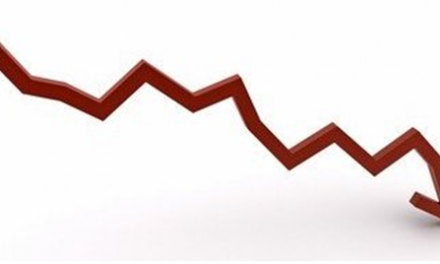Of late there has been much said about apologies, forgiveness, and what it means to move forward after a public or private dispute. The question of what it means for people in different positions and professions to be put to task for their actions, and how the public responds, is on the forefront of non-politics journalism, and I’d like to take this opportunity to use my platform – this website – to share my two cents on the matter.
In recent talks with a friend we discussed how actions and words can be judged really on three criteria: the intent of the sender, the reception by the receiver, and how the same may be judged by the society at large. In my opinion, it’s not up to me to determine whether or not someone shouldn’t be offended or take umbrage at something that is said. I don’t mean to say that people shouldn’t be careful with their words and actions because it’s not their fault if they offend – quite the opposite, in fact – I believe strongly that if someone is offended or injured, the intent of the sender functionally doesn’t matter, in the context of that relationship.
Just as it’s not up to the sender to determine whether or not someone else has been insulted, I also believe it’s not up to them to ask for or demand forgiveness for the same. If I insult someone, accidentally or otherwise, I don’t get to decide how long or how deeply they “get to be” upset with me; it’s wholly out of my control and unique to every situation. I can try my best to atone, to apologize, and to make amends, but it’s not my decision when they should stop (or start) feeling a certain way. In that respect I actively dislike the phrase “please forgive me” – it’s putting onus on an already-injured party, as if by not immediately forgiving something they are the offending party.
Through human history and much of pop culture, there’s much said about newfound relationships and the first person to say “I love you.” There’s the societal and personal pressure for the other party to respond in kind, and whole stories have been penned about someone not being comfortable saying it back. Just as expecting someone to say “I love you too” is putting them on the spot, I find that asking for forgiveness is similarly putting them in a disadvantageous situation, and an unfair one at that.
It has been said that saying “I’m sorry” isn’t about everything going back to the way it was – it’s about owning mistakes, accepting the consequences, and moving forward. An apology doesn’t undo an injury, but rather hopefully shows that the person apologizing recognizes their mistake and is attempting to correct the situation. Assuming that an apology, whether simple or ornate, has made everything right is putting pressure or assumptions back on the victim; it’s not up to a third party to decide how someone else feels, or should feel.
As an example, with the rising availability of video recorders, more and more people are getting caught espousing racist or hate-filled opinions. Their default and seemingly by-the-playbook response to being outed is “that’s not who I am” and many online commentators/supporters pop up, suggesting that the person made a simple mistake and made their apologies, everything should be okay. They don’t appear to see the overwhelming wave of people caught on camera, and how it represents a broader societal problem – rather it seems that they see each individual moment as a discrete action.
Growing up as a middle-class white male, I have been afforded a lot of opportunities and advantages in life that others haven’t. It’s sad for me to recognize that others may not see their privilege as such, and that some go so far as to condemn others for not having the same backgrounds they themselves enjoyed. There’s absolutely something to be said for working hard to get what you want, but I believe it foolishness to not recognize the role of luck and circumstance in determining someone’s path through work and life.
There have been times in my life where I have acted in ways that insulted, hurt, or disenfranchised others. Whether through my own ignorance or intentional malice (though luckily the latter has been rare), others have had poor experiences in my company. I’m not saying this at the exclusion of the good times and positive experiences others have had, but I strongly believe that I owe a debt to those I have wronged. In some cases, I believe I’ve paid my dues, while in others I yet think I have a long way to go. In neither situation do I believe I deserve or have earned someone’s forgiveness. It’s not for me to ask for, it’s for them to give, if and when they feel like they can.
Over time I’ve taken steps to heal wounds I believe I have inflicted on others, and after a long period of reflection, at this point I think I’ve done what I can to either rebuild those bridges or at least show that I am trying to rise above my previous failings and grow as a person. Recently I have come to realize that I can’t sit around waiting for the phone to ring and for someone to tell me that they forgive me, or even accept my apology. I’ve done what I can, and it’s time for me to try and move forward – I can’t put the rest of my life on hold, waiting for someone else to feel a certain way.
This post began with a fairly clear premise in my head and has meandered across the map, but I think it’s served its role as both soapbox and personal declaration. Forgiveness demanded isn’t forgiveness freely given, and in many cases can serve to reinjure a wronged party. Conversely, there’s a fine balance when it comes to how one can make reparations and amends, and at what point they’ve done “enough.”
I suppose it boils down to “life is complicated, people are complicated, relationships are complicated.” While that may be true, I also think it’s possible to be a more empathetic, understanding person, no matter which side of an equation you see yourself on.













